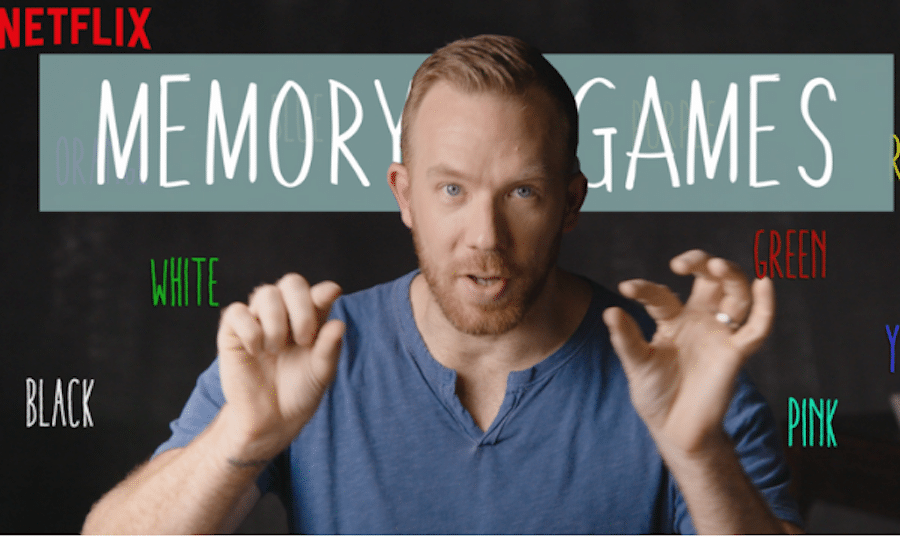The concept of memory is very important to Nelson Charles Dellis, a 4x USA Memory Champion, a best-selling author, public speaker, and consultant. In his book “Remember It!: The Names of People You Meet, All of Your Passwords, Where You Left Your Keys, and Everything Else You Tend to Forget,” Dellis offers proven techniques on how to strengthen memory. Dellis is also featured in the new Netflix documentary “Memory Games,” which follows four very different mental athletes as they compete for championship glory and delves into what “memory” means to each of them.
Q. Aside from a disease process like Alzheimer’s, why do most people “forget” things, like people’s names, grocery lists, phone numbers, etc.
The number one reason people forget things is because they aren’t trying or paying attention. It sounds so simple, but honestly, it’s all it is. I have all sorts of techniques for memory, but what they ultimately boil down to is elaborate methods of paying attention to things. Next time you go to a party, tell yourself “I WILL MEMORIZE 10 PEOPLE’S NAMES.” It will be all you can think about during that party, so you’ll pay more attention, and as a result you’ll get those names.
Q. You teach the Memory Palace technique in your book. What is it and how can we all use it to improve memory?
The Memory Palace technique is one of the top techniques memory experts will use to memorize large bits of information. I used it once to memorize 10,000 digits of pi. Yeah, 10,000! It works like this: take a familiar place like your home, office, or gym (or whatever you want!) and imagine mentally walking through the space. As you walk through, imagine crazy images for what you’re memorizing placed along a route through that walkthrough. When it comes time to remember your information, just take a walk back through your palace and you’ll see the images you left there. Trust me, it works.
Q. You are featured in the Netflix documentary “Memory Games.” What is it about and why is this film so important?
The film follows four very different mental athletes over the course of a few years as they compete for mnemonic championship glory. But there’s also the softer side of the film that dives into each of our own experiences with memory and what it means to us. I think that’s the best part of the film. It’s very human. We all have a memory, so we all can relate. Memory means something so different to all of us, but at the same time, it means the very same thing: to be human.
As a 4x USA Memory Champion and memory expert, what have you learned about the workings of the brain that you can share?
The main thing I’ve learned is that the brain is malleable. You can change it. We all get stuck in mental ruts that seem impossible to get out of, or we feel like our brain power isn’t strong enough to learn a new language, a new skill, comprehend a topic––but that’s all wrong. The brain is like a muscle. Sure, things can be difficult. But with repetition, proper strategy, and daily discipline, your brain can turn into anything you want it to be.
For more information about Nelson Dellis, click here.

